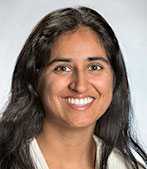
11 Dec Paid Parental Leave Available to Medical School Faculty but Not Trainees
MedicalResearch.com Interview with:

Kirti Magudia, MD, PhD
Diagnostic RadiologyResident, Brigham and Women’s Hospital
Clinical Fellow, Radiology, Harvard University
Debra F. Weinstein, M.D.
Vice President, Graduate Medical Education, Partners Health Care
Associate Professor of Medicine, Harvard Medical School
Christina Mangurian, MD,MAS
Professor and Vice Chair at the UCSF Department of Psychiatry
Weill Institute for Neurosciences
Core Faculty, UCSF Center for Vulnerable Populations
Affiliate Faculty, UCSFPhilip R. Lee Institute for Health Policy Studies
Reshma Jagsi, MD, DPhil
Professor and DeputyChair, Department of Radiation Oncology
Director, Center for Bioethics and Social Sciences in Medicine
University of Michigan
MedicalResearch.com: What is the background for this study?
What are the main findings?
Response: Training lengths for medical specialties are increasing and many people are starting training later. Hence, many more trainees are having children during training, an especially difficult time due to long and inflexible work hours. Given the match system, trainees may not have complete control over where they end up in training and thus may not have an optimal support system nearby. Many of the top training institutions are also in high cost of living areas. Since trainees are essentially temporary employees, changing policies to their benefit is challenging. For all of these reasons, prospective and current trainee parents are especially vulnerable.
Parental leave is important to both male and female trainees. We found that just over half of the 15 top graduate medical education (GME) sponsoring institutions associated with the top 12 medical schools did not have parental leave policies. Without these policies, trainees are at the mercy of their departments and program directors. Those institutions that do have parental leave policies for trainees offer significantly less leave to trainees than to faculty. Even then, trainees may not be encouraged to take leave afforded by policy as, depending on specialty board regulations, the leave may extend training time.
MedicalResearch.com: What should readers take away from your report?
Response: Paid parental leave is not a guaranteed benefit for many trainees, even at GME sponsoring institution associated with the top training institutions. However, parental leave policies are available for faculty affiliated with each of the top medical schools. Inadequate parental leave may lead to residents experiencing severe fatigue. In addition, without the opportunity for adequate parental leave, women, to a greater extent than men, may avoid specialties with longer training lengths (or those that are less flexible in terms of schedule and number of hours) in order to accommodate their plans for a family.
However, change is underway. For example, Partners Healthcare, consisting of training residents at the Brigham & Women’s and Massachusetts General hospitals, recently developed a much more generous parental leave policy, providing 8 weeks of paid parental leave to any resident or clinical fellow (father or mother), separate from the 4 weeks of allotted vacation. This is certainly more generous than most institutions, but I expect that others will try to move in this direction.
MedicalResearch.com: What recommendations do you have for futureresearch as a result of this work?
Response: Parental leave is a complex issue. We encourage all GME-sponsoring institutions to develop trainee parental leave policies and to make trainees aware of these policies so that they can utilize what is offered to them. It should also be clear to applicants what the policies are at the institutions that they are applying to, information that before this article has been extremely difficult to obtain. Lastly, there should also be advocacy at the specialty board level to ensure that trainees can take adequate parental leave and not simultaneously be required to extend the length of training.
MedicalResearch.com: Is there anything else you would like to add?
Response:
Citation:Dr. Mangurian reported receiving salary support from theNational Institutes of Health (NIH) and the Doris Duke Charitable Foundation during the study period for unrelated work. Dr. Jagsi reported receiving grants from the NIH, the Doris Duke Charitable Foundation, the Susan G. Komen Foundation, and the Greenwall Foundation for unrelated work; consulting fees from Amgen and Vizient; and stock options in Equity Quotient.
Magudia K, Bick A, Cohen J, et al. Childbearing and Family Leave Policies for Resident Physicians at Top Training Institutions. JAMA. 2018;320(22):2372–2374. doi:10.1001/jama.2018.14414
[wysija_form id=”3″]
[last-modified]
The information on MedicalResearch.com is provided for educational purposes only, and is in no way intended to diagnose, cure, or treat any medical or other condition. Always seek the advice of your physician or other qualified health and ask your doctor any questions you may have regarding a medical condition. In addition to all other limitations and disclaimers in this agreement, service provider and its third party providers disclaim any liability or loss in connection with the content provided on this website.
Last Updated on December 11, 2018 by Marie Benz MD FAAD
